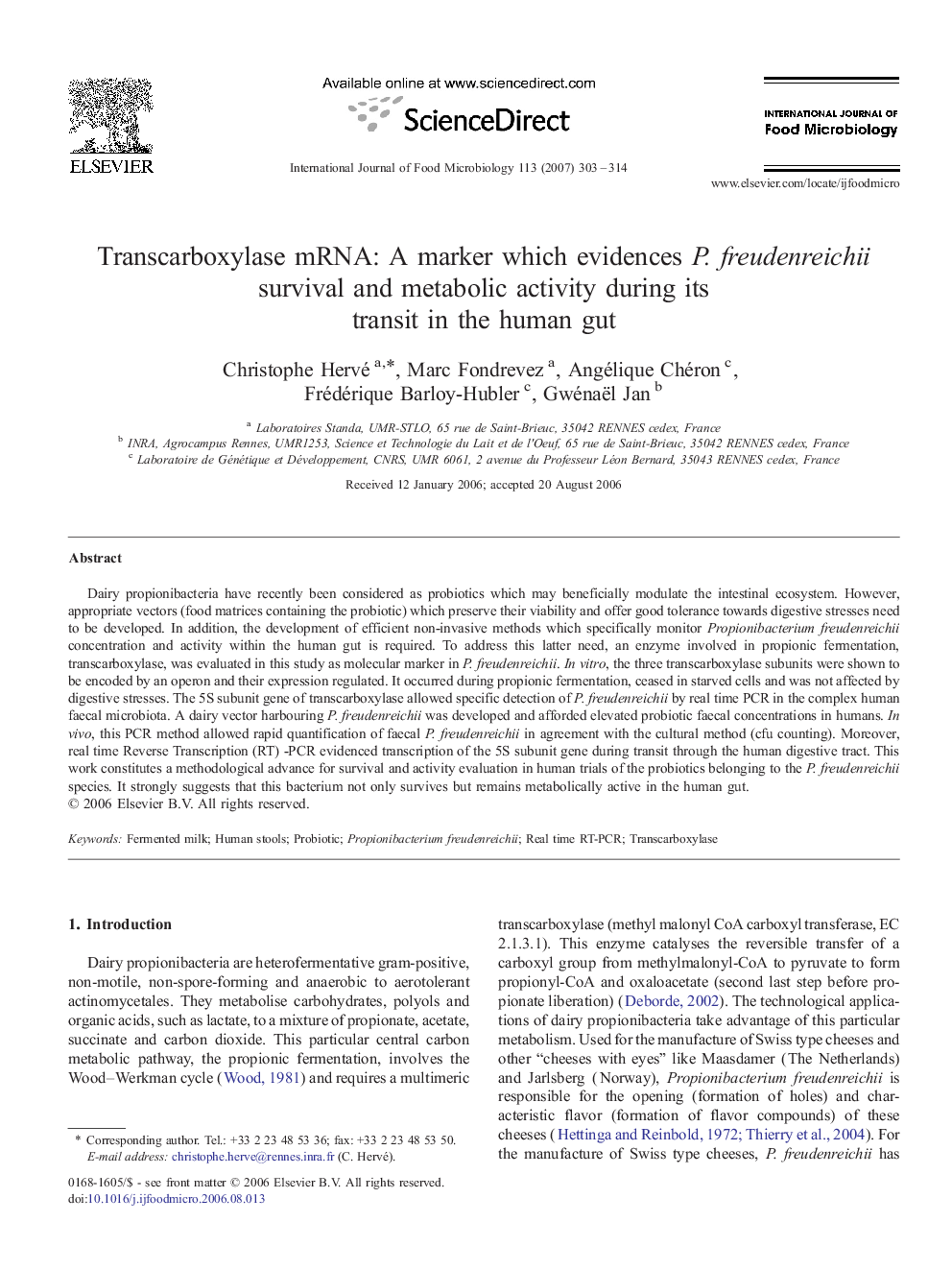| Article ID | Journal | Published Year | Pages | File Type |
|---|---|---|---|---|
| 4369728 | International Journal of Food Microbiology | 2007 | 12 Pages |
Dairy propionibacteria have recently been considered as probiotics which may beneficially modulate the intestinal ecosystem. However, appropriate vectors (food matrices containing the probiotic) which preserve their viability and offer good tolerance towards digestive stresses need to be developed. In addition, the development of efficient non-invasive methods which specifically monitor Propionibacterium freudenreichii concentration and activity within the human gut is required. To address this latter need, an enzyme involved in propionic fermentation, transcarboxylase, was evaluated in this study as molecular marker in P. freudenreichii. In vitro, the three transcarboxylase subunits were shown to be encoded by an operon and their expression regulated. It occurred during propionic fermentation, ceased in starved cells and was not affected by digestive stresses. The 5S subunit gene of transcarboxylase allowed specific detection of P. freudenreichii by real time PCR in the complex human faecal microbiota. A dairy vector harbouring P. freudenreichii was developed and afforded elevated probiotic faecal concentrations in humans. In vivo, this PCR method allowed rapid quantification of faecal P. freudenreichii in agreement with the cultural method (cfu counting). Moreover, real time Reverse Transcription (RT) -PCR evidenced transcription of the 5S subunit gene during transit through the human digestive tract. This work constitutes a methodological advance for survival and activity evaluation in human trials of the probiotics belonging to the P. freudenreichii species. It strongly suggests that this bacterium not only survives but remains metabolically active in the human gut.
